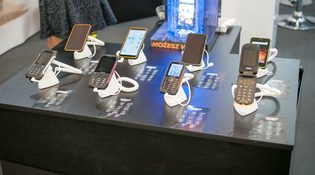 loading
loading
FindingsThe lifespan of a cellphoneBrand identity—not repairability—is what extends a phone’s functional life.  Matti Blume/Wikimedia CommonsView full imageTamar Makov ’19PhD, a doctoral candidate at the Yale School of Forestry and Environmental Studies, keeps two old iPhones in a drawer beside her bed. “These are products that still have utility—basically supercomputers that can send a man to the moon,” she says. “And yet after a few years I’ve deemed them obsolete.” Most cellphones last even less than two years—a social and environmental concern, given that smartphones contain more than 50 elements, many of which are toxic, linked to civil conflict, or rare. In response to this “throwaway society,” as Makov describes it, consumer and political pressure has risen to make phones easy to repair and upgrade. But a recent analysis by Makov demonstrates that this approach won’t alleviate the problem. With two colleagues, she studied nearly 500,000 sales of Apple and Samsung smartphones on eBay, considering the effect of a long list of product specifications on each sale. In the end, a phone’s “repairability” mattered little to its economic lifespan; nor was technical functionality valued. Of decisive importance, though, was the phone’s brand. Smartphones manufactured by Apple, which regularly ranks as the world’s most valuable brand, remained in the resale market roughly 12 months longer than comparable Samsung phones. To Makov, this suggests that investing effort in making phones that are easily repaired or upgraded will result in marginal benefit. A better focus might be corporate take-back and recycling programs. She also noted other implications. First, the fact that a booming secondhand market for phones exists suggests the true lifespan of these gadgets is underreported. “People might buy a phone to use as a music player, or a camera, or a glorified alarm clock,” but they’re buying it, Makov says. Second, one interesting method for prolonging the life of smartphones may be educating consumers on how to repurpose them. And “third is to think about whether luxury consumption is actually more-sustainable consumption,” she says. The Apple of handbag brands—Louis Vuitton—is resold more than any other bag on eBay.
The comment period has expired.
|
|